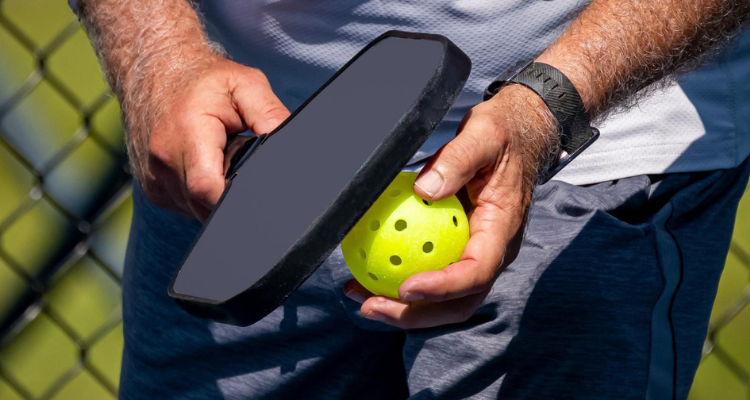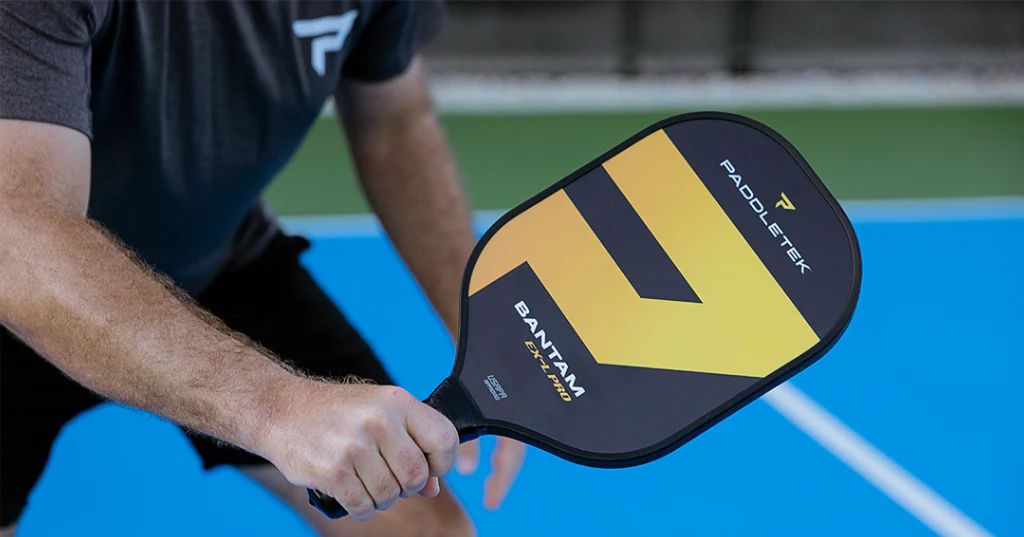One of the most difficult aspects of pickleball is winning the last point of a game. You may have experienced this yourself: you lead by a comfortable margin, but you can’t close out the game. Why does this happen? And how to overcome it?
5 Reasons Why It Is Difficult to Get the Last Point
There are several reasons why winning the last point and closing out a pickleball match can be challenging. Here are some of the reasons:

- Increased Pressure
The last point is the most important one, which can make or break your game. You may feel nervous, anxious, or tense, affecting your concentration, confidence, and execution. You may also put too much pressure on yourself to win or worry about losing or disappointing others.
- Risk-Averse Approach
When you are close to winning, you may play more conservatively and avoid taking risks. You can play safe shots, avoid errors, or wait for your opponent to make a mistake. However, this can backfire, as you may lose your aggressiveness, creativity, or initiative. You may also give your opponent more opportunities to attack or counterattack.
- Opponent’s Determination
Your opponent may keep going and fight harder to stay in the game. They may raise their level of play, increase their intensity, or change their strategy. They may also try to distract, intimidate, or frustrate you with their shots or behavior. They may have nothing to lose and everything to gain, while you may have everything to lose and nothing to gain.
- Momentum Shifts
The last point can be influenced by the momentum of the game, which can change quickly and unpredictably. You may lose momentum if you make a mistake, miss an opportunity, or face a challenge. Your opponent may gain momentum if they make a good shot, save a point, or win a rally. Momentum can affect your emotions, energy, and motivation, as well as your opponent’s.
- Mental Fatigue
Your mental state can also affect the last point, which can deteriorate over time. You may feel tired, bored, distracted, or impatient. You may lose your focus, discipline, or patience. You may also experience mental blocks, doubts, or fears. You may need help to think, make good decisions, or adapt to changing situations.
Tips to Win the Last Point
Here are some tips to help you win the pickleball game:
- Relax and Breathe
The first tip is to calm yourself down and reduce stress. You can do this by taking deep breaths, loosening your muscles, or smiling. You can also use positive self-talk, affirmations, or visualization to boost your confidence and optimism. You can also remind yourself of your strengths, achievements, or goals.
- Play Your Game
The second tip is to stick to your game plan and strengths. You can choose the right shots, tactics, or partners for your style and skill level. You can only change your game if you need to adapt to your opponent or the situation. You can also trust your instincts, intuition, or experience.
- Take Risks and Be Aggressive
The third tip is to be assertive and proactive in your play. You can do this by taking calculated risks, attacking when you have a chance, or finishing the point when you can. You can also avoid playing too passively, defensively, or reactively. You can challenge yourself, push your limits, or surprise your opponent.
- Ignore Your Opponent and Focus On Yourself
The fourth tip is to block out distractions or interference from your opponent. You can ignore their shots, comments, gestures, or expressions. You can also avoid arguments, conflicts, or mind games with them. You can also control your emotions, reactions, or responses to them.
- Enjoy the Moment and Have Fun
The fifth tip is to have a positive attitude and enjoy the game. You can do this by having fun, being playful, or being grateful. You can also appreciate the challenge, the opportunity, or the learning experience. You can also celebrate your successes, learn from your failures, or congratulate your opponent.

Frequently Asked Questions
How to end a pickleball game?
Pickleball is fun, but remember to end it fairly and respectfully. The players should inform each other when the end of the game approaches so that they can agree on a score. It’s polite for the game-winner to offer gratitude or congratulations at this point. After that, both players should shake hands and thank each other for playing.
What can cause your team to lose a point in pickleball?
Several factors can cause a team to lose a point in pickleball. It includes missing the ball, fouling by hitting the ball out of bounds or over the net, making a foul shot (such as carrying, volleying, or double-hitting), failing to return a serve within 7 feet from where it was served, and making an unforced error.
How to get a point in pickleball?
To get a point in pickleball, a player must be the first to score 11 points and have at least a two-point advantage over their opponent. A point is earned when one player misses the ball or fails to return the ball properly within the court boundaries. Serve volleys, where you hit a serve and then volley it back into play without your opponent hitting it back, are also legal and can be used to earn points.
Why do some pickleball games go to 15?
Some pickleball games are typically set to 15 points. It can make the game more competitive by giving players a longer scoreline, allowing players to come back from behind, and making room for greater strategy play. Additionally, having two rallies per point can promote consistency and accuracy while challenging the game’s psychological aspect.
In conclusion, winning the last point in pickleball can be challenging, but with the right mindset and strategies, you can overcome this obstacle. Remember to stay focused, be confident, and have fun while playing. Happy Pickleballing!



